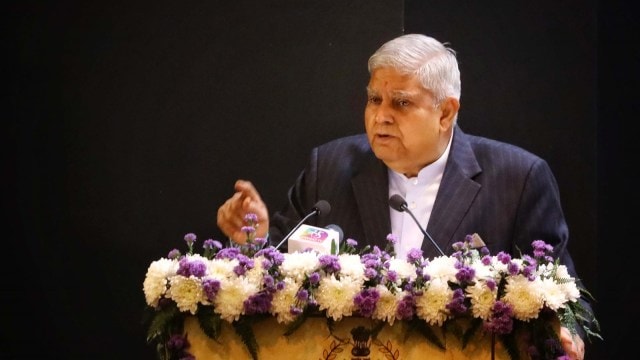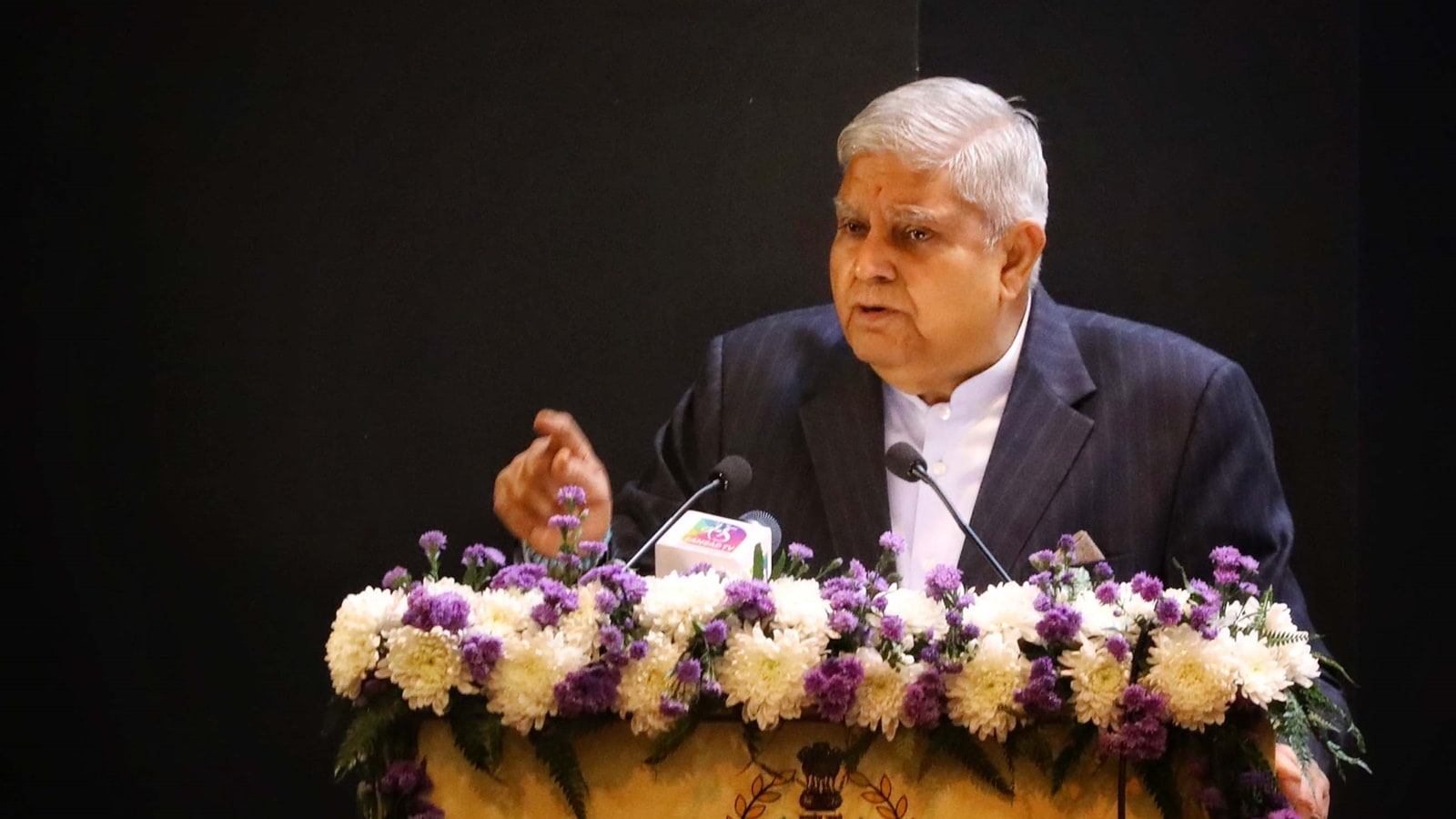

Feb 1, 2025 12:47 IST First published on: Feb 1, 2025 at 12:31 IST
Vice President Jagdeep Dhankhar has raised an issue that can rejuvenate our legislative institutions. While interacting with students on January 23, he said, “Why should there be a whip? Whip means you are curtailing expression, curtailing freedom, and subjecting your representative to servility.” Simply put, a whip is a direction by political parties to compel our MPs/MLAs to vote in a particular manner.
In parliamentary systems, political parties issue whips to legislators. The objective is to indicate the party’s or its leadership’s decision on an issue. However, in most countries, adhering to a whip is not mandatory. A legislator violating a whip has either no consequence or may invite the party bosses’ displeasure. In India, the situation was similar. Granville Austin, in his seminal book, The Indian Constitution: Cornerstone of a Nation, points out that during the framing of our Constitution, there were constituent assembly members who routinely defied the whip without any repercussions.
Story continues below this ad
But the 1967 elections changed things. After these elections, the Congress party’s hold on legislatures loosened, bringing coalition governments into the public glare. Government formation is a numbers game. During these elections, when political parties did not get a clear majority, they cajoled MLAs to switch sides during voting in the assembly. The non-binding nature of whips made this possible. In some cases, MLAs also offered their votes to multiple bidders, adding to the political spectacle. The toppling of governments and individual acts of political promiscuity laid the groundwork for a law to prevent the violation of party whips.
From this context emerged the Anti-Defection Law of 1985. Its objects and reasons stated, “The evil of political defections has been a matter of national concern. If it is not combated, it is likely to undermine the very foundations of our democracy and the principles which sustain it.” The law’s solution to prevent unscrupulous legislators from destabilising governments was to penalise them for defying the party’s whip.
However, the anti-defection law’s provisions have cast a suffocating net on a lawmaker’s freedom of speech and expression. Its provisions specify that if lawmakers defy their party’s whip on any issue (not just that which decides the government’s fate), the consequences are much harsher than the leadership’s displeasure. Under this law, the party can disqualify them from the Parliament/state assembly. The law also provides that legislators will incur disqualification if they “voluntarily” give up their political party membership. The judiciary has interpreted this to mean indulging in anti-party activities.
Story continues below this ad
Combining these two provisions prevents our MPs/MLAs from independently deciding an issue. They are forced to toe the party line and can neither vote nor speak what they believe is right. The mandatory whip system under the anti-defection law stifles debate. But its harm doesn’t stop here.
Our Constitution specifies that government formation and continuity depend on whether it commands a majority in the directly elected House. Therefore, a law designed to safeguard governments from toppling should only apply to the Lok Sabha. However, the anti-defection law also applies to Rajya Sabha MPs. Our constitution framers and courts believed that this House would check hasty and ill-conceived legislation and would be “an institution of federal bicameralism and not just as a part of a simple bicameral legislature.” A whip whose violation results in disqualification changes Rajya Sabha’s constitutional character. From being a House of reason and revision, it becomes similar to the populist Lok Sabha.
most read
The whip system will raise another critical issue in the 2025 parliamentary calendar. Last year, Rajya Sabha MPs moved a motion to remove a high court Judge. Discussion on a judge’s removal in Rajya Sabha does not destabilise a government. If and when this motion comes up for debate in the House, it will raise the question of whether parties should bind their MPs with a whip.
The power that anti-defection law gives to political parties over our representatives is visible in other aspects of our parliamentary functioning. For example, examining parliamentary proceedings for the last three decades will show that MPs disrupt parliament not by their own volition but by the instructions of their parties. These directions are not in the form of a whip, but the sword of the anti-defection law is always in the background.
On January 31, 41 years ago, Parliament passed the anti-defection law. As a result, political parties can prevent our public representatives from speaking and voting freely in our legislatures. During this time, the anti-defection law failed miserably in preventing political instability. But we continue to hold on to a failed law that makes our elected representatives button-pressing mouthpieces of political parties. We should repeal the penalising whip and the anti-defection law. It will reinvigorate parliamentary debate and strengthen our democracy.
Chakshu Roy is with PRS Legislative Research


